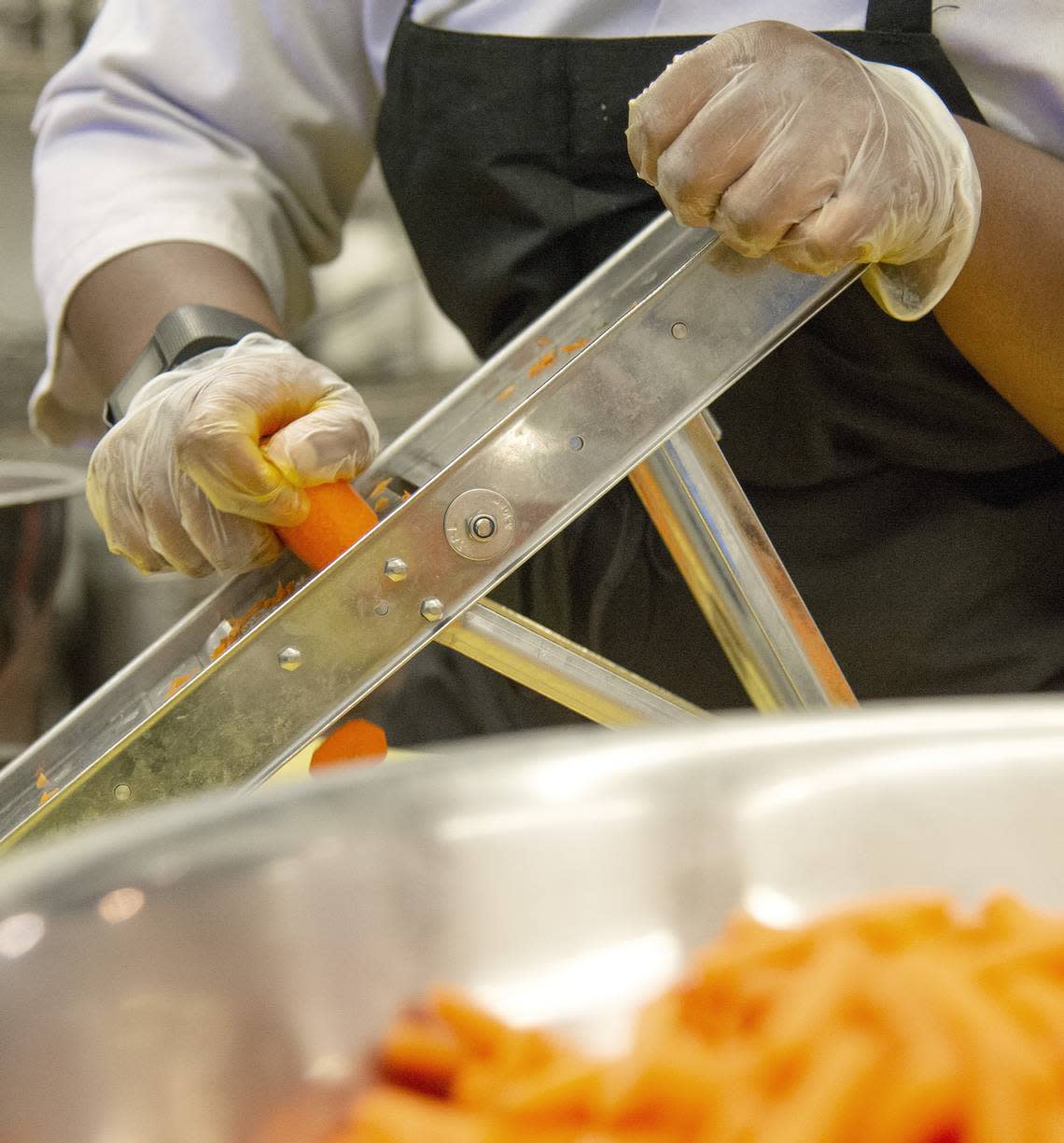Hundreds of Macon students face homelessness. ‘The prices of everything have escalated.’

Macon is experiencing a climb in homelessness among public school students, a trend reflected nationwide, according to recent data.
By the end of the 2023-2024 school year, 668 Macon students were classified as homeless, said Danielle Jones, the district’s homeless and foster care liaison. This means school served as the main reliable shelter and food source for 3% of the city’s student population in public schools.
“This is a high number, higher than years past normally,” Jones said. “The number of students experiencing homelessness in the district fluctuated between 550 and 700 over the last eight years.”
Jones is in charge of providing additional support in a variety of ways to disadvantaged youth under the federal McKinney-Vento Homeless Assistance Act.
The act requires school systems to address challenges that homeless children face when in school, such as a lack of access to school materials, uniforms, adequate transportation and tutoring.
$15K donated to help Macon’s homeless students
The Robins Financial Credit Union donated $15,000 to Bibb County Schools’ education program for homeless students, according to an early July press release.
The money comes at a vital time, when homelessness among school-age children in Georgia has been hovering around 40,000 students for nearly a decade, according to the most recent Ed Data Express statistics on youth homeless enrollment.
Federal funding doesn’t allow Bibb County Schools to purchase housing or food items for families in need. Jones said the local grant allows the district to do some of those things, ensuring homeless youth get housing aid and meals.
“If someone was evicted unexpectedly, and they have kids in the school district, we would be able to pay for a hotel for up to two to three nights just until they could figure out where they’re going to go next,” she said.
Local community groups also pitch in to help close the gaps and serve families at their most vulnerable times.
June O’Neal, executive director of The Mentor’s Project of Bibb County and chairwoman of the Macon Coalition to End Homelessness, said she has helped serve at least 50 homeless children in the past year. When they have the money, the organizations cover first-month’s rent and provide deposits to help people find housing, she added.
“There’s no such thing as affordable housing anymore,” O’Neal said. “The prices of everything have escalated, and sometimes families can’t pay for groceries, rent or gas to get to work. That is what’s causing the numbers of homeless children to escalate.”
With 24-hour hunger relief and family services, Sgt. Austin Sturdivant of the Salvation Army of Greater Macon described the organization’s partnership with the school system as a tag-team approach to food insecurity.
“We have 18 children right now in our facility, and that alone is an opportunity for kids to be somewhere in a safe space rather than out on the streets,” he said.
Sturdivant also said they try to make sure children are getting an education when they’re in the facility, and when they move into stable housing.
Facing barriers in school
The Bibb County School District will resume classes in less than 30 days. What would ordinarily be an exciting time for other students may be stressful for homeless students.
“It’s very hard for someone to concentrate on school if they’re moving from place to place, bed to bed, and just don’t know where they’re going to spend the night,” O’Neal said.
In a time of persistent economic constraints that have driven nearly 60% of Macon residents to face financial hardships, a lack of economic stability can have a range of effects on a student’s education, the most important of which is attendance, according to Jones.
“When children are facing housing insecurity, they move around a lot and sometimes miss a lot of days. This creates learning gaps,” she said.
Homelessness can also cause a slew of health difficulties due to a lack of access to health care, Jones added.
More than 2,000 people in Macon under the age of 18 had no health insurance between 2018 and 2022, according to Kids Count Data Center.
“That also impacts attendance, which impacts academic achievement. Students cannot learn if they’re not in school,” Jones said.
Jones said the district aims to address the nationwide disparity in graduation rates between typical high school students and those experiencing homelessness by implementing interventions that provide academic support.
The district also makes sure that homeless students aren’t left out and have access to football equipment or cheerleading uniforms if they want to participate in extracurricular activities, Jones said.
“The ultimate goal is for students experiencing homelessness to have access to the same programs and services that are available to other students that are not experiencing homelessness,” she said.


